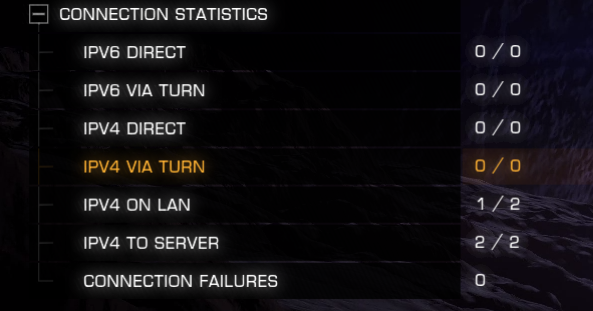Does anyone know if there are ways to optimise the networking/instancing, for when multiple clients connect to the same 1Gb switch?
I've had friends over in the past for LAN parties, and we've never noticed any real improvement on instancing, lag, rubber banding etc, even though being peer-2-peer you would have thought the clients would work much better over LAN?
I've had friends over in the past for LAN parties, and we've never noticed any real improvement on instancing, lag, rubber banding etc, even though being peer-2-peer you would have thought the clients would work much better over LAN?

